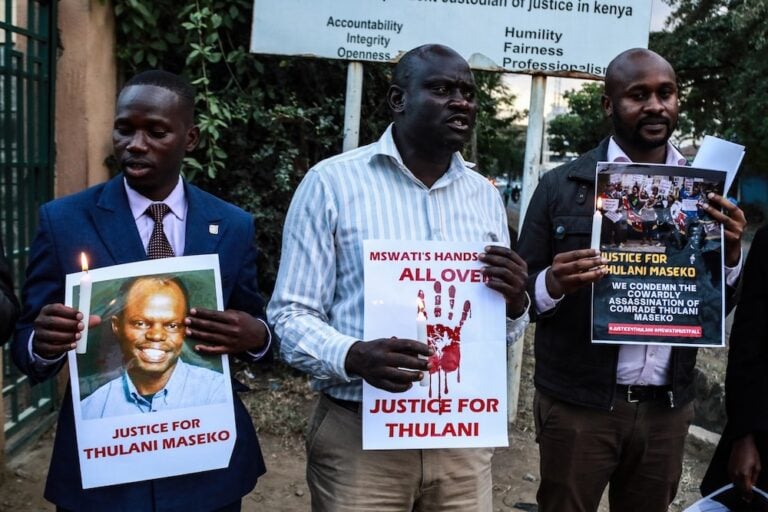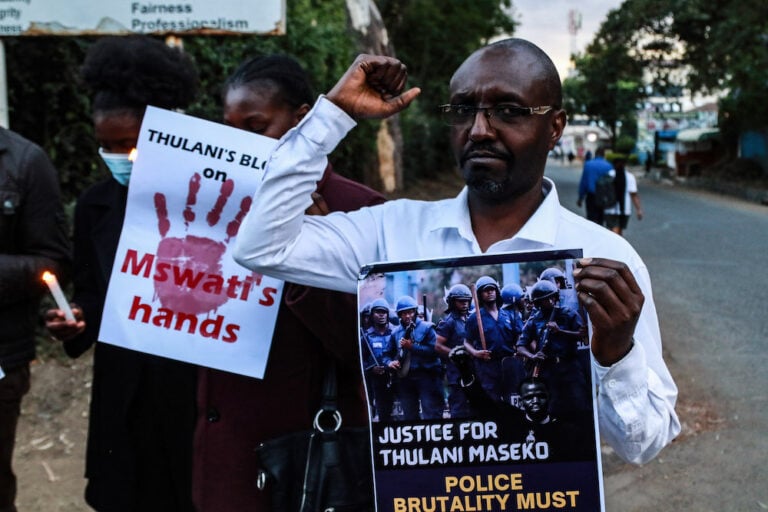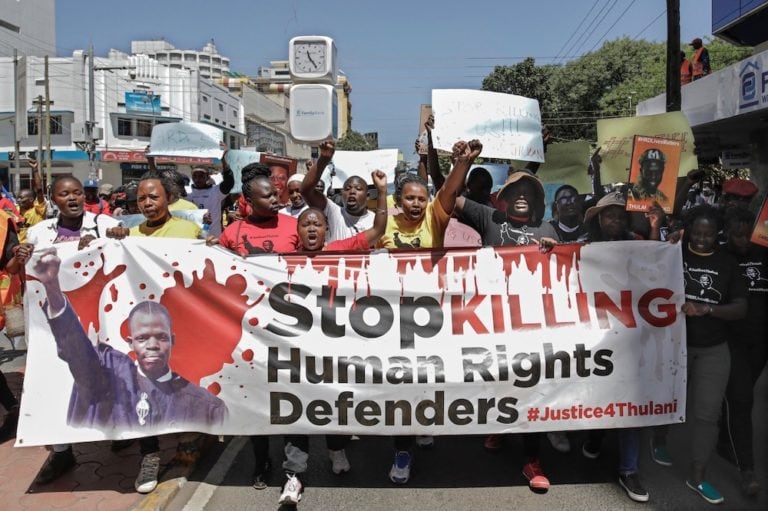(MISA/IFEX) – On February 23, 2007, one of King Mswati III’s right-hand men heavily censored the media during a press conference which the King gave on his return from a European trip. This latest incident comes in the wake of several appeals by the Media Institute of Southern Africa (MISA) Swaziland, to Swazi traditional authorities […]
(MISA/IFEX) – On February 23, 2007, one of King Mswati III’s right-hand men heavily censored the media during a press conference which the King gave on his return from a European trip. This latest incident comes in the wake of several appeals by the Media Institute of Southern Africa (MISA) Swaziland, to Swazi traditional authorities to desist from attempts to censor and intimidate journalists.
On February 23, 2007, Bheki Dlamini, the Chief Executive Officer in the King’s office, barred journalists from asking the King any questions relating to a recently-formed Swaziland Police Union whose formation has shaken the establishment.
Young and progressive police officers, much against expectations from senior police and the traditionalist camp, have exploited a constitutional clause to establish the police union. They have openly challenged their seniors who have relied on an age-old Police Act to try and stop the union. But a recent ruling by the High Court that the Police Act was inconsistent with the constitution has strengthened the resolve of the young officers to push their agenda forward.
Evidently, because of the interesting nature of the developments, journalists were likely to seize the opportunity to hear the views of the King on the issue.
But Dlamini, regarding the matter as too sensitive for the King to address, warned journalists against asking the King anything relating to the police union. Failure to oblige would result in their removal from the press conference, he warned. Whilst this shocked the journalists, they grudgingly obliged.
On February 26, the “Times of Swaziland”, the country’s only independent newspaper, ran an editorial challenging the continued censorship, intimidation, and harassment of the media. The newspaper argued that the King was old enough to decide on his own whether or not to answer a journalist’s question and did not need anyone in his court to defend or decide what is good or bad for him.
BACKGROUND:
The continued intimidation and harassment of journalists has instilled perpetual fear in the newsrooms and has resulted in widespread self-censorship. In response to this scenario, MISA Swaziland intends to provide training to traditional authorities on the role of the media in society.
The chapter has also begun a series of meetings with editors and journalists to try and address the issue of self-censorship and fear in the newsrooms.


